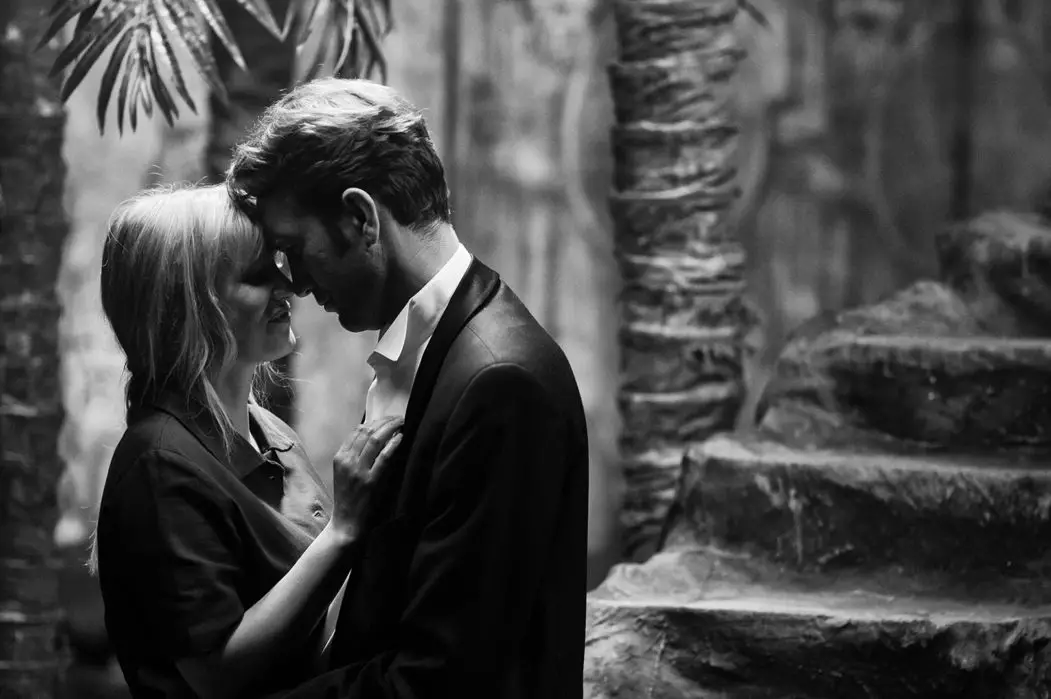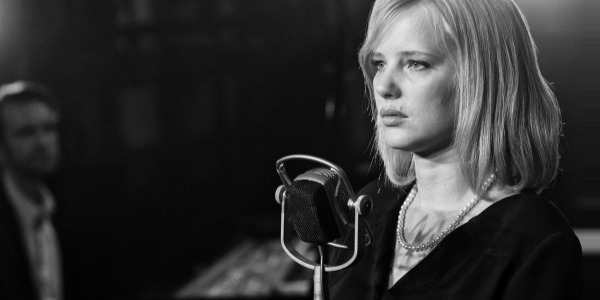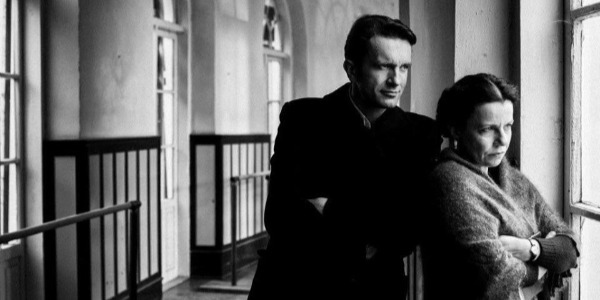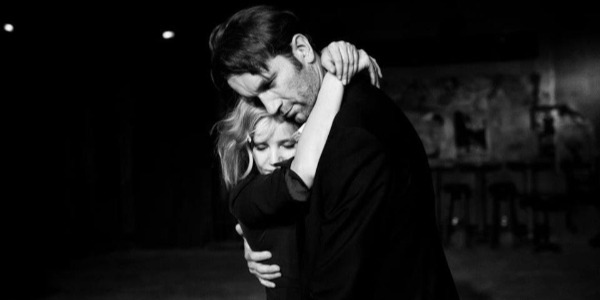COLD WAR: A Captivating, But Frustrating, Miniature Epic

Alistair is a 25 year old writer based in Cambridge.…
In an era where the only similarity between blockbuster filmmakers and arthouse auteurs is the fondness for punishingly long, two hour-plus running times, a filmmaker like Paweł Pawlikowski should be celebrated for his ability to tell epic stories that always clock in below the 90 minute mark. His previous film, 2013’s Ida, managed to deal with the weighty theme of Poland’s guilt in the decades following the German occupation – an emotion keenly felt within a compact character study that was a mere 82 minutes long.
With Cold War, Pawlikowski has crafted his most ambitious project yet: a portrait of a tortured relationship starting in late 1940’s Poland, climaxing in the early sixties. Through that time, we are carefully led from behind the iron curtain to Westernised democracy and back again, depicting the changing face of a post-war continent, all as the backdrop to a toned down relationship drama (loosely based on the lives of his parents, to whom the film is dedicated) that defies a conventional narrative trajectory. You can’t fault the sheer ambition behind Cold War; but at a mere 85 minutes, I couldn’t help but feel that this was the director’s first film that could have benefitted from a more extended duration.
A Shrunken epic that needed room to grow
Pawlikowski captures the essence of the relationship largely via the very details he omits to show, repeatedly cutting to black and jumping ahead to the future every few minutes. It’s a method that ensures he can cover as much ground as possible while maintaining a brisk running time, but it also keeps us at arm’s length from acknowledging the characters as anything more than brush strokes. For a story grounded in reality, that he has a personal connection to, this can’t help but feel like a misjudged decision. Cold War’s ambitions frequently exceed its grasp – but a director who shoots for the moon and doesn’t fully succeed is always captivating to watch, and certainly preferable to a director who chooses to play it safe.

Opening in the late 1940’s, we’re thrown into various rural communities where a renowned composer and a producer are searching for young people to be the faces of a manufactured, nationalist folk act; authentic Polish faces who sing about the country’s tortured past and traditions, while also singing the praises of the powers that be. The composer in question is Wiktor (Tomasz Kot), who is immediately drawn to Zula (Joanna Kulig), a teenager from the city who auditions. She couldn’t be further removed from the traditions being searched for, auditioning with a Russian song as opposed to a Polish one, and living a lifestyle tainted with scandal where rumours pre-empt her presence. She isn’t a quiet, unassuming country girl, but a teenager alleged by many to have killed her own father.
The pair develop something approaching a relationship, spending the following decade disconnecting and reconnecting again – although rekindling what they had before proves to be a challenge due to the obstacle that is the volatile political situation of their homeland, especially after Wiktor relocates to Paris, as well as Zula’s seemingly loveless marriage. As the world changes around them, Wiktor stubbornly stays the same, chasing an idealised version of love and the perfect woman, even as reality has shown that they get to a heightened state of conflict whenever they meet up.
If you weren’t aware of Cold War’s autobiographical origins, it could easily be interpreted as one of several different allegories, albeit ever so slightly out of grasp, never coalescing into a coherent statement. Initially, it could be read as a metaphor for artistic compromise; although the touring musical troupe are manufactured, they stay close to their stated aim of singing rousing ballads of rural poverty – until they achieve initial success, and governmental intervention leads them to quite literally sing the praises of Joseph Stalin, the “king of the proletariat”.

Although it’s a period piece, it could also be read as a parable for the modern political age; Wiktor finds himself devoid of a core nationality after moving to France, getting into deeper trouble in his attempts to move back to his homeland, where he’s considered a foreign actor for the crime of moving away. It’s the distrust of migration from nationalist governments presented within an unusual dynamic; the Soviet Polish People’s Republic (as it was then known) not trusting a citizen who moved to the comparatively liberal, democratic Paris, presented here during 1957 – the year France became one of six nations to join the newly formed European Union, which promoted integration to stop a resurgence of nationalism.
With the far-right Law and Justice party currently in power in Poland, with several policies aimed at dismantling EU laws, it’s safe to say there is an echo between the distinctive politics presented in the film and the world we are currently living in. They may be on the other side of the spectrum to their Soviet predecessors, but that just makes the similarities between the two diametrically opposed viewpoints (in theory, at least) all the more noticeable.
A beautiful evocation of a tortured era
There is food for thought here, even if it never fully convinces as an allegory for either. As the low-key character study supplanted onto an epic canvas, Cold War equally struggles – but Pawlikowski’s ambition can’t be faulted. It’s easy to see why the Cannes jury awarded him Best Director at this year’s festival, as he manages to beautifully evoke a bygone era without ever shying away from portraying the horrors of the post-war slide into a different kind of authoritarianism.
He’s aided by stunning cinematography from his Ida DP Łukasz Żal (whose work here echoes Tarkovsky‘s Ivan’s Childhood in its vivid portrayal of rural Eastern European communities), as well as exquisite sound design that sells the changes in popular music through the different periods, from rapturously received choral recitals, to boisterous jazz and rock’n’roll needle drops later on. You may not fully buy into the dynamic of the central conflicted partnership, but through aesthetics alone, it’s easy to commend Pawlikowski for how he can capture the profundity of the passage of time without overtly highlighting details such as the changes in music taste, or the disparate paths taken by the various nations the characters inhabit over the years.

Plaudits should also be given to Joanna Kulig and Tomasz Kot, whose lead performances manage to blend into the scenery, feeling like products of a living, breathing historical document as opposed to a narrative feature. Kulig, in particular, deserves commendation for taking what seems like an archetypal (and, arguably, slightly problematic) wild female character on paper and drastically underplaying the role.
With the exception of one lakeside confrontation, the character isn’t one to overshare her emotions – Kulig’s naturally expressive face doing the heavy lifting in lieu of exposition, or any moments to delve deeper into the character’s psyche. At one point, she even manages to draw a vivid portrayal of her conflicted feelings in the middle of a dance sequence, without speaking a single word. She breathes life into a somewhat underdeveloped character.
Conclusion: Cold War
Cold War is a captivating, commendable effort; one that refuses to follow the footsteps of a conventional relationship drama, but results in a final product that never gets under the skin of characters we are urged to become invested in across the span of almost two decades. Pawlikowski manages to evoke the passage of time especially well, making it keenly felt despite the slim duration – but the lack of development of each character, especially ones inspired by his own parents, counters his sheer ambition, not fully realising the potential of his somewhat biographical effort.
It’s far from a misfire, but it is a grand epic deserving of a far grander canvas than this.
Cold War is released in the UK on August 31, and in the US on December 21. All international release dates are here.
Does content like this matter to you?
Become a Member and support film journalism. Unlock access to all of Film Inquiry`s great articles. Join a community of like-minded readers who are passionate about cinema - get access to our private members Network, give back to independent filmmakers, and more.
Alistair is a 25 year old writer based in Cambridge. He has been writing about film since the start of 2014, and in addition to Film Inquiry, regularly contributes to Gay Essential and The Digital Fix, with additional bylines in Film Stories, the BFI and Vague Visages. Because of his work for Film Inquiry, he is a recognised member of GALECA, the Gay & Lesbian Entertainment Critics' Association.













